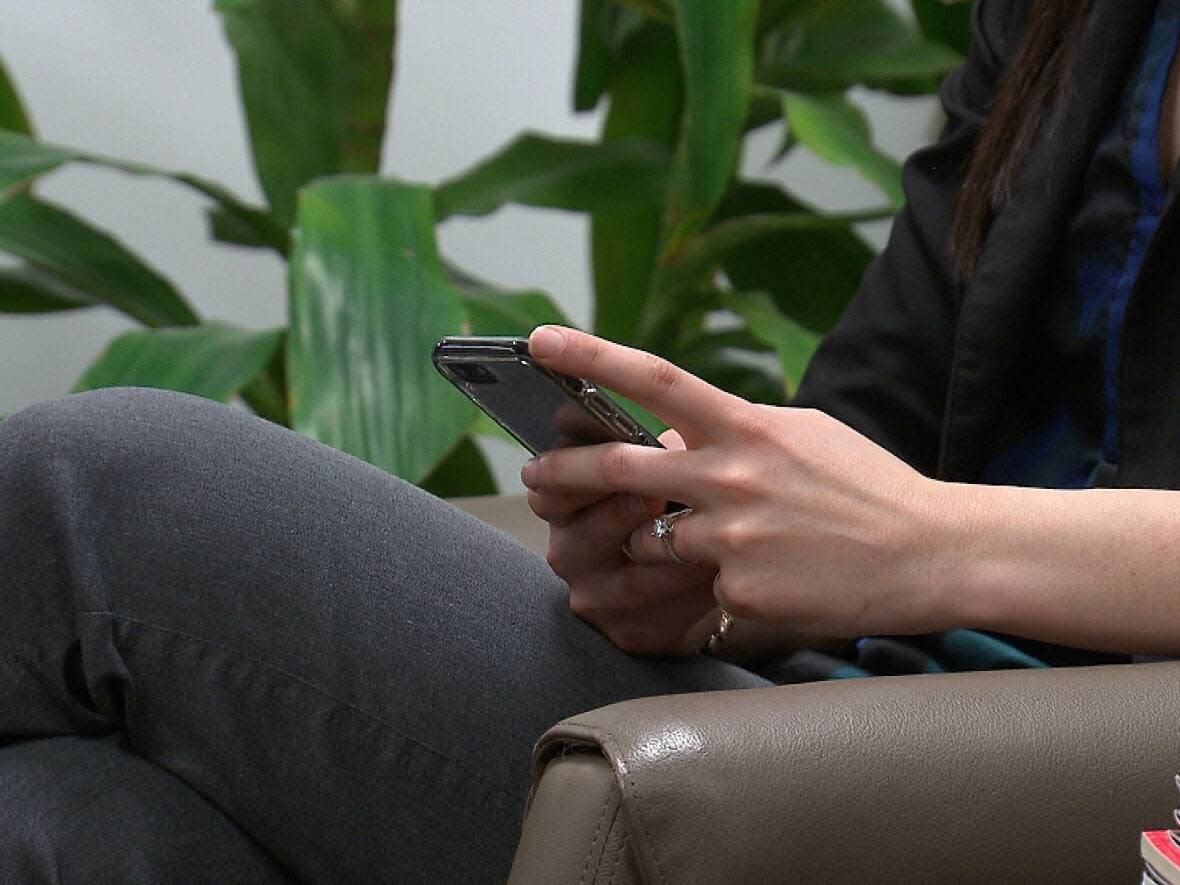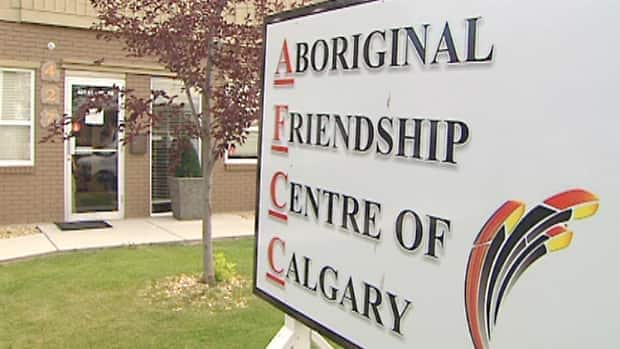Free phones offered to Indigenous women at risk, but program slow to catch on in Calgary

In early 2020, Telus partnered with five Indigenous friendship centres across Alberta to provide free smartphones and data plans for Indigenous women in violent situations.
But nearly two years later, the Aboriginal Friendship Centre of Calgary hasn't activated any of the 10 phones from the phone provider because of barriers faced by Indigenous women experiencing domestic violence during the pandemic.
That's according to Lori Johnstone, Indigenous COVID-19 task force co-ordinator — and lead of the program's partnership — at the Aboriginal Centre of Calgary.
"If COVID didn't happen, we would be asking for more phones," said Johnstone.
She says the Mobility for Good program is needed as it gives women a direct line to the support they need, but the pandemic has left the friendship centre unable to see clients regularly like it did before. Because of this, many women who could use the resource don't know about it or aren't comfortable asking for help.
Johnstone says Indigenous women face more roadblocks when leaving violent situations and it's important "to not worry about that extra phone bill, to not worry about your safety, to have someone on the other end available like myself."
Women who access a free phone also receive three gigabytes of data each month, and Johnstone says there's no limit on how long they can keep them.
More difficult to ask for support during pandemic
According to Statistics Canada, 61 per cent of Indigenous women have experienced some form of intimate partner violence in their lifetime, compared with 44 per cent of non-Indigenous women. That number increases to 86 per cent for LGBTQ2S Indigenous women.
The pandemic makes it harder to seek help to leave those situations, says Johnstone.
"Because of COVID, people are staying in their situation that they're in and they're not reaching out," said Johnstone. "I mean, where do they have to go? What job are they going to do? Who's going to be there to support them?"

Melissa Roy, program co-ordinator for the friendship centre, says it takes time to build trusting relationships with people seeking help.
"When someone is experiencing violence, it's an extremely personal and vulnerable place to be in because you're putting yourself at risk if you reach out, but you're at even more risk when you don't," said Roy.
She says people experiencing domestic violence tend to be extremely careful — especially when accessing services — because they don't want to draw any attention to themselves in case there are repercussions from their abuser.
Johnstone adds that when someone is in a domestic violence situation, they want to talk to somebody face to face.
The friendship centre is closed to the public, and while the team is doing outreach work, those in-person connections have been harder to maintain.
Women can call in to access free phone
Johnstone says she hasn't received any calls from women who are looking for phones, but she would work with anyone who does.
"They can call in and I would definitely go and see them where they're at," she said. "I would do an outreach call with them, meet with them at the public library or Tim Hortons or wherever needed."
She says she would also become the community support for women who are given phones through the program.
"[If] she calls needing support or she had to call 911, the 911 person would get a hold of me as her community support to be there for her," said Johnstone.
"Me being there supporting the person while they're going through what they're going through so they don't have to deal with police — I think that's a win-win situation right there."


